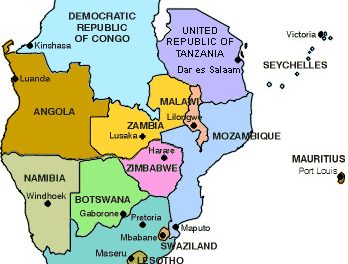
If Namibia wants to innovate it needs to be agile

By Bjorn Wiedow
Co-Founder and Director FABLab Namibia
Namibia is focused on creating a knowledge-based society where technology, innovation, entrepreneurship at every socio-economic level becomes the norm. This is a bold and major challenge for us as a nation.
To achieve this, we need to be agile. Being ‘Agile’ as a nation, as a people and in our institutions means we need to be quick, ready to change tack at a moment’s notice and definitely not conform to the norm and present methods of working and truly think outside of the box. Perhaps even throw the box away!
Being able to see and act upon potential opportunities and possibilities for change through innovation is the only path to success. This means that the business environment needs to change. It can only survive if Namibia can successfully compete and even flourish in the face of the range of emerging adverse and fluctuating business and economic conditions.
At FABLab Namibia we use and instil the concept of being innovative as a Unique Selling Proposition to position products and services ahead of the competition or challenge the status quo. FabLab is about creating and developing agile innovation cultures and accountable business management processes that will allow Namibia and Namibians to become part of global industry eco-systems. Powered by NUST, FABlab Namibia has access to young motivated people who will be the driving force behind Namibia’s economy in the near future.
This almost sounds too good to be true and often seems a long way off. Being agile as a nation and an economy means that everything is set up to stimulate an innovative economy and be a catalyst for an innovative economic sector. This starts with high-speed Internet that is always on, always stable and available nationwide. Everything from the nation’s Chamber of Commerce, the educational institutions starting at primary education all the way through to tertiary education, need to stimulate innovation and entrepreneurship. This is how Namibian University of Science and Technology was able to make FabLab Namibia happen. They saw the potential of this innovation. SOE’s, the Government, corporations and public organisations, as well as Public Private Partnerships all need to subscribe and embrace this agility and innovation if Namibia does not want to be left behind on the world stage. Especially if it wants to fulfil its Vision 2030.
This is the only way in which the Namibian Government and business leaders’ vision can be achieved. We need to be passionate and realise there’s a real sense of urgency and necessity in making innovation a visionary and strategic agent of change and business breakthroughs, competitiveness, growth and value-adders in the age of disruption. Another essential aspect of making Namibia agile is creating a business climate where processes are simplified and easy to carry out. A one-stop-shop for registering a new business for example. Cutting bureaucratic red tape when applying for a loan. Working with your preferred supplier because of quality guarantees and knowing they will deliver the right product at the right time in working order. Not getting countless quotes from suppliers that means stalling a manufacturing process for days, weeks and sometimes months. Whilst a nation ties itself up in red tape, another country is breaking free and grabbing opportunities that could be ours.
By creating products and services that people value and cherish, by effectively using technology we can be competitive and become a knowledge-based society where our grasp of disruptive technology and industries really makes the difference. At FABlab Namibia we firmly believe that achieving an agile Namibia that is at the forefront of innovation on the African Continent is possible and achievable. It does however require us all to pull together as a nation. Truly embodying the Harambee spirit and doing away with red tape and hoops to jump through will give Namibia its much needed competitive edge and make it agile in every sense of the word.












































